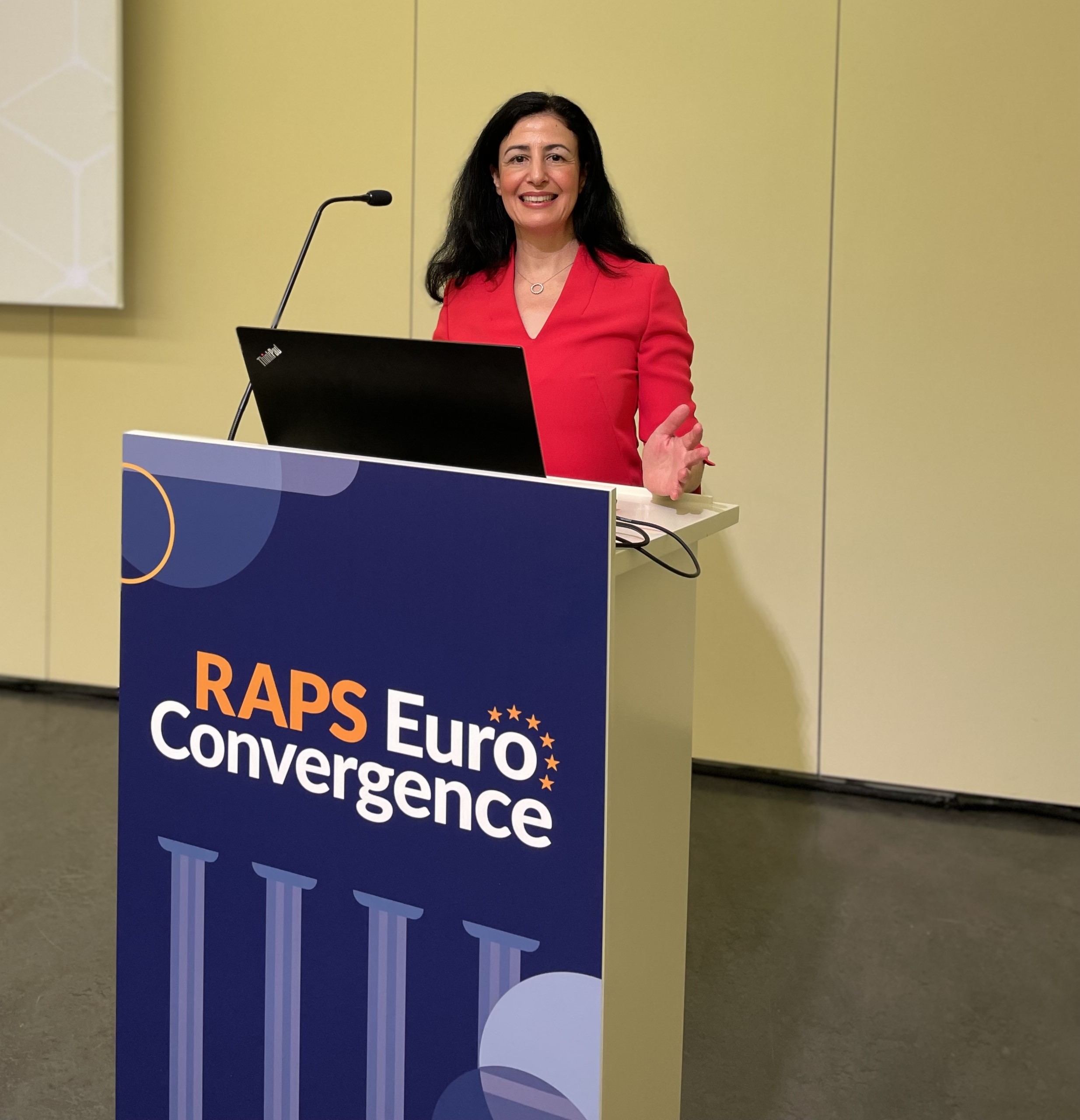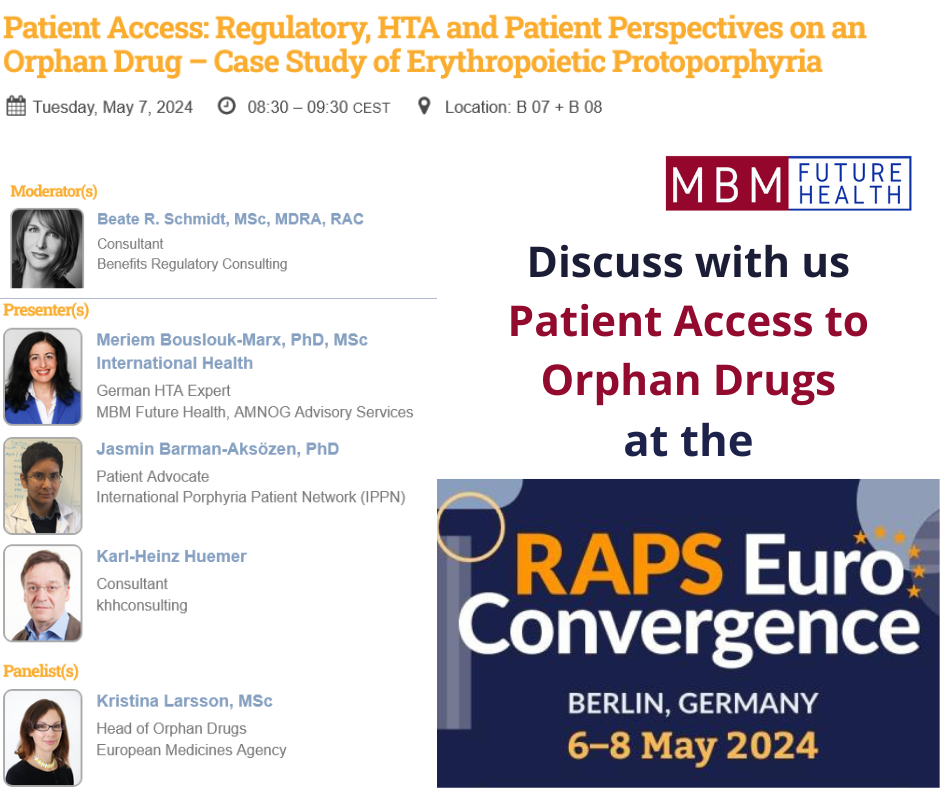Obstacles for patient access to medicines can happen at different stages of a medicine’s life cycle. Therefore, marketing authorisation should not be the ultimate goal. Patient, regulatory and HTA perspectives on an EU approved orphan drug were discussed at the RAPS Euro Convergence 2024. Dr. Meriem Bouslouk-Marx, MBM Future Health, presented the G‑BA resolutions on afamelanotide for the rare disease erythropoietic protoporphyria (EPP).
First, Dr. Bouslouk-Marx explained that decisions made by the G‑BA under AMNOG are crucial for the reimbursement price of medicines in Germany. Secondly, she highlighted the importance of the EU orphan designation for the benefit assessment of orphan drugs in Germany.
Afamelanotide (brand name SCENESSE) was approved in the EU in December 2014. The launch in Germany in February 2016 was the start of the G‑BA assessment. The G‑BA published two resolutions on the benefit assessment of afamelanotide. The basis of these resolutions was the dossier of the pharmaceutical company, the dossier assessment by the G‑BA and the hearing procedure. In addition, the G‑BA had commissioned the Institute for Quality and Efficiency in Health Care IQWiG for the assessment of treatment costs and patient numbers.
In the first resolution adopted on 4 August 2016, the G‑BA stated an additional benefit for afamelanotide, but could not quantify its extent on the basis of the scientific data. The G‑BA limited the validity of this resolution to 1 January 2021 because of post-approval requirements by the EMA.
After that, the G‑BA adopted a second resolution on afamelanotide on 1 July 2021. Once again, the extent of the additional benefit was non-quantifiable. The G‑BA could not use the additional evidence submitted because of methodological limitations.
Incentives for orphan drugs allowed patient access in Germany. The G‑BA resolutions on afamelanotide show that different evidence requirements for an EU-wide marketing authorisation and for a national reimbursement decision can be a key obstacle for patient access to medicines. Thus, early alignment between regulatory and HTA bodies seems necessary for a successful Joint HTA in the EU.

Meriem Bouslouk-Marx at RAPS Euro Convergence 2024

